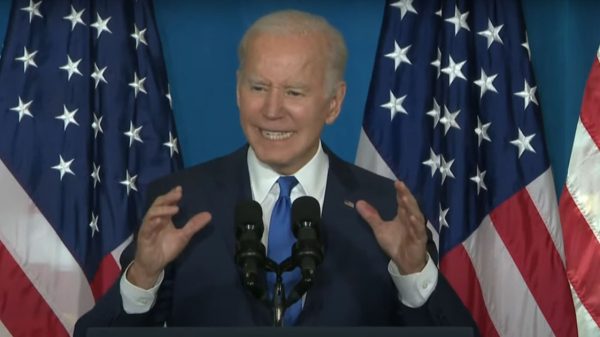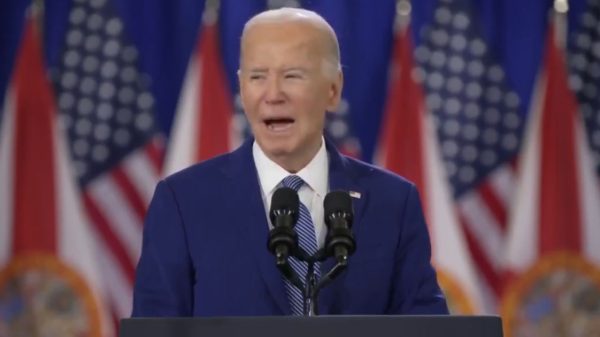Schools in Washington are likely to give more lenient punishments to non-white children, with white kids punished more harshly, as part of “culturally responsive” policies.
Last year, the Washington state legislature passed SB 5044, that required school districts to implement standards for “cultural competency” in all schools across the state, and forced all staff, along with school district board members, to receive training in diversity, equity, and inclusion; in other words, mandating CRT-style standards in education policies.
According to the Washington State School Director’s Association, “cultural competency” includes: “knowledge of student cultural histories and contexts, as well as family norms and values in different cultures; knowledge and skills in accessing community resources and community and parent outreach; and skills in adapting instruction to students’ experiences and identifying cultural contexts for individual students.”
“Culturally Competent educational leaders have a mindset and behaviors that enable them to foster policies and practices that provide the opportunity to effectively engage with and serve diverse students, educators and community members,” the WSSDA notes.
As a result, these policies are being implemented in regards to all areas of school life, including punishment. During a meeting of the Clover Park School District this month, the board discussed their new “culturally responsive” punishment policy.
This policy would not just consider the actions of the students, but also their race and background. According to the policy, students may face “exclusionary as well as positive and supportive forms of discipline,” but the focus of the policy is to “keep students in the classroom and provide “equitable educational opportunities.”
If these “culturally responsive” policies in Washington schools are designed to provide “equitable” outcomes, despite the fact that no data suggests disproportionate enforcement, the logical conclusion of such a push is that white kids must therefore be punished more harshly, and non-white children will receive less harsher punishments, on average, argued Jason Rantz.
“Essentially they’re referring there, that you look at ‘are you dispersing discipline across the ethnicities, the racial groups equitably,’ right?” Deputy Superintendent Brian Laubach said during the meeting. “So, are you disciplining African-American boys more than you’re disciplining white boys, right? So, are you paying attention to all of that in your data?”
NEW: WA schools are being pushed into "culturally responsive" discipline, which considers a student's race before punishment. It means white students will likely be punished more harshly. Clover Park School District reviews a policy below.
READ MORE: https://t.co/LEolNRrJE6 pic.twitter.com/mNZuV67l2z
— Jason Rantz on KTTH Radio (@jasonrantz) March 22, 2022
Anthony Veliz, a board member of the Clover Park School District, argued at the meeting it should be taken into account if students who are caught that stealing, for example, are taught that it is okay to do so at home, when doling out punishments.
“What if, you know, just saying, like, in my background, what if that type of rule that we broke was more acceptable at my house, right, versus your house?” Veliz argued.
Paul Wagemann, a conservative member of the board, rejected the whole concept, and said justice should be the top priority when considering how to deal with children who break the rules.
“Let’s say we both commit the same offense,” Wagemann argued.
“Then the question should be what are the consequences of that offense? And how do we go through that process? That’s how I see it. And to be fair, if we both did the same thing, we should get the same consequence, the way I see it. And I think that’s how most children on the playground like to see it. Most of us, as citizens in our community, like to see it that way. That it’s equal.”
“Do I have to look at [a student’s] nationality or where he was born or where he lived? No!” Wagemann said. “He did an offense. I did the same offense. We should suffer the same consequence. And I think that’s what our system should do, at least the way I see it,” he added.
“There’s been a lot of comments about this whole equity and stuff, so are we looking at it to make sure we’re not doing something that could cause a problem for a particular student. Certainly, the rules need to be fair so that everybody knows what they are. Once they know those rules, they can’t use the excuse, well, I did it that way at home,” Wagemann concluded.
David Anderson, another board member, highlighted that the culturally responsive policy in the Washington school district had not been thought through, given that Laubach had given the example of the policy admittedly off the top of his head, and that the many of the terms in question were not defined.
“While it’s true that we have had two comprehensive reports to this board on district discipline data, we’ve never had a discussion with my knowledge about the terminology which we are committing ourselves to,” Anderson said.




































